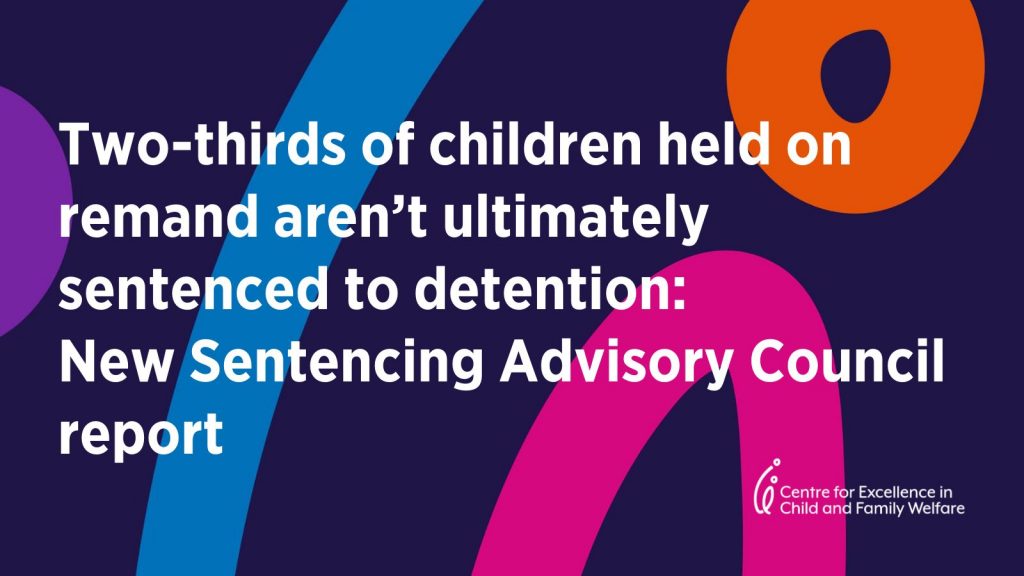The Centre is calling on the Victorian Government for greater investment in early intervention programs that work with families to keep children out of prison.
The Sentencing Advisory Council (SAC) has released Children held on remand in Victoria: A report on sentencing outcomes. It has found that the number of children on remand has doubled over the past decade. Concerningly it has found that up to two thirds of remanded children do not receive a custodial sentence. This means that the majority of children are spending periods in prison on remand when they should have been in the community.
Nearly half of all children remained in remand for three weeks or less and one quarter remained for one week or less. This data indicates that these children could have been kept out of youth detention.
Holding children on remand can lead to serious negative long term outcomes including a disruption to education and employment, mixing with sentenced young offenders who are also incarcerated and being unable to access therapeutic and rehabilitation programs. The longer a young person is held on remand, the more likely they are to receive a custodial sentence.
It is well-established that each contact with the justice system exacerbates the risk of further contact, trapping children in the revolving door of youth justice. The SAC report has found that 94 per cent of children on remand had had prior contact with the criminal legal system.
We know that children who have suffered abuse and neglect or have been known to the child protection system are overrepresented in the criminal legal system. So too are children with substance abuse issues, mental health issues and difficulties with cognitive functioning. Cycling through the criminal legal system will not address the underlying causes of youth offending.
We need to focus on early engagement with families, to give them the help they need to keep their children safe. It means investing in early intervention programs that work to keep children out of prison for the long term and it means addressing the barriers to keeping children in community and out of remand.







